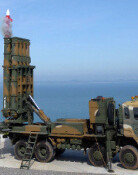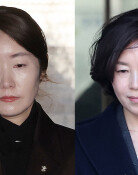On the Revealing of the Documents
On the Revealing of the Documents
Posted January. 17, 2005 22:19,
The revealing of the Korea-Japan normalization accords on January 17 was the result of continual lawsuits and efforts made by the past victims and families of the Japanese forced conscription policy.
Though the Korean victims of Japans forced conscription policies had filed 70 lawsuits in Japanese and American courts against Japan since the 1970s, most were turned down on the grounds on the expiry of statute of limitations and national immunity.
The Korea-Japan normalization documents were first brought up as evidence for compensation at the state assembly in California in 1999, with the passage of the Special Bill proposed by State Senator Tom Hayden. This bill permits the extension of the statute of limitations to 2010 for the American WWII slave laborers to bring action to court against the German and Japanese companies.
Fueled by this bill, Chinese and Korean victims brought their case to the American court. Japan then began to reason that on the basis of the Korea-Japan normalization, we are not obliged to compensate for individual requests.
On the compensatory lawsuit filed at the Busan District Court by the victims of conscription against the Japanese Mitsubishi Heavy Industry on May 2000, the Japanese pleaded a statute of limitations. The court in charge of the case requested a confirmation of facts on the normalization documents, which was rejected by the Ministry of Foreign Affairs and Trade.
On September of the same year, the compensatory lawsuit filed at the Washington D.C. District Court was also turned down on grounds of the normalization accords.
The victims then turned to the Ministry of Foreign Affairs and Trade by requesting that the normalization documents be open to the public in order to review the statute of limitations. The government rejected the request by stating that not one case may be revealed. The victims filed a lawsuit against the government, and partially won the suit last year at the Seoul Administration Court.
The government maintained its stance by appealing against the courts decisions, but decided last December to reveal the documents by projecting the difficulty in winning the appeal, after the media reported on the doubtful points on the normalization by revealing parts of the document.
Jae-Dong Yu jarrett@donga.com







